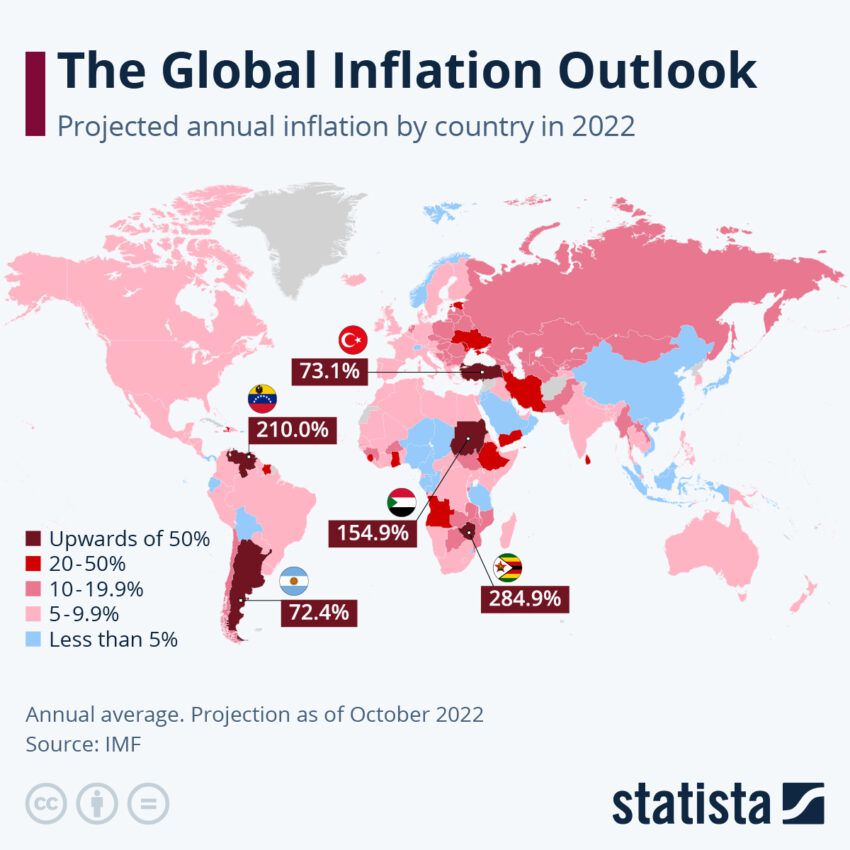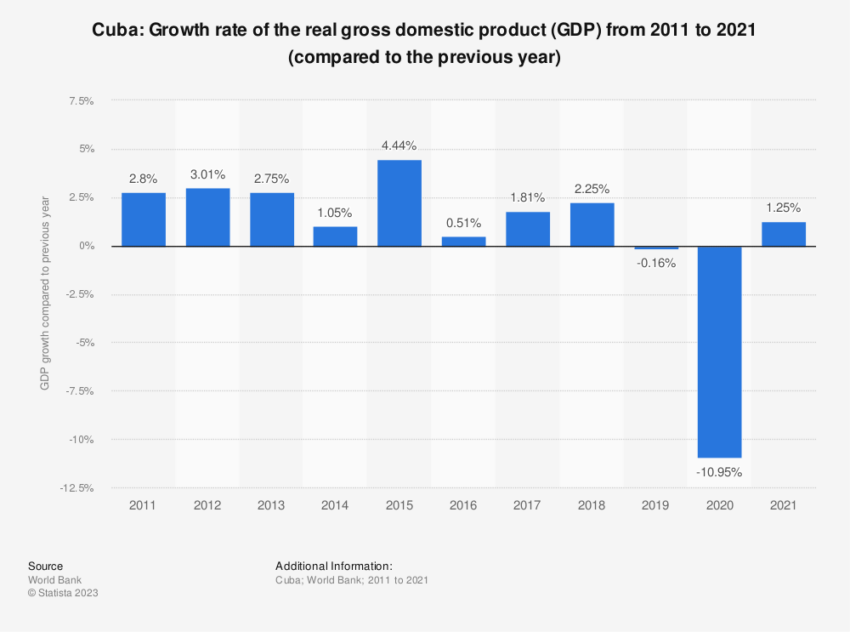Beyond Digital Currency: Bitcoin Saves Lives Worldwide

Cryptocurrencies have evolved beyond their original purpose as digital currencies, demonstrating that Bitcoin saves lives and supports communities in challenging situations globally.
Real-world applications of cryptocurrencies showcase how they contribute to financial inclusion as well as economic stability and empower marginalized communities in the face of adversity.
Bitcoin Offers Refuge From Economic Crises
As the Turkish lira experiences a sharp decline in value, Turkish citizens are piling into Bitcoin and Tether. They desperately seek ways to protect their savings and maintain purchasing power.
The growing interest in cryptocurrencies in Turkey has led to a surge in crypto-related businesses and trading platforms, catering to the increasing demand for alternative financial instruments.
Likewise, Venezuela’s economic crisis and hyperinflation have forced its citizens to seek alternative means of preserving their wealth. Many Venezuelans have turned to Bitcoin to safeguard their savings as the national currency, the bolivar, continues to lose value.
In a country where even basic necessities are scarce, Bitcoin saves lives, providing a lifeline for Venezuelans to purchase essential items and medical treatments.

The Global Inflation Outlook. Source: Statista
The economic crisis in Lebanon has also left many citizens struggling to make ends meet. With the local currency plummeting in value, some Lebanese have turned to Bitcoin mining as a source of income. Furthermore, Lebanese citizens use stablecoins like Tether to buy groceries and essential goods, offering financial stability amid the chaos.
Argentina is another country where economic troubles have led citizens to seek alternative financial solutions. Cryptocurrency has emerged as a popular choice for preserving wealth and protecting against the country’s rampant inflation. With restrictions on the purchase of foreign currency and a high rate of inflation, Argentineans increasingly rely on digital currencies to maintain their purchasing power.
Empowering Marginalized Communities
In the aftermath of the Taliban’s takeover of Afghanistan, many women lost their jobs and their ability to support their families.
Cryptocurrencies have enabled Afghan women to receive donations worldwide, providing much-needed financial support. This influx of funds has allowed these women to continue supporting their families in the face of adversity.
On the other hand, sex workers often face discrimination from traditional banks, leading to financial exclusion. Crypto has offered an alternative, enabling sex workers to receive payments and manage their finances without relying on traditional banking systems.
Turning to cryptocurrencies allows these individuals to maintain financial autonomy and protect their earnings from potential seizure or censorship.
Lifelines During Political Unrest
During the EndSARS protests in Nigeria, the government froze the bank accounts of key organizers. Protesters turned to Bitcoin to fund their cause, circumventing government interference and continuing their fight for justice.
This use of cryptos highlights the power of decentralized financial systems in enabling activists to maintain control over their funds and movements.
Around the world, political dissidents are increasingly turning to cryptocurrencies to fund their activities and avoid government interference. In authoritarian countries where financial repression is common, cryptos have emerged as a powerful tool for dissidents to receive funding and continue their fight for freedom.
Aiding Refugees and Immigrants
Amid the Russia-Ukraine crisis, many Ukrainians have fled their homes, seeking refuge in neighboring countries. Some refugees have relied on Bitcoin to secure their finances during this uncertain time.
One Ukrainian refugee, for example, fled to Poland with $2,000 worth of Bitcoin on a USB drive. Bitcoin provided a lifeline and financial stability in a time of upheaval.
Cryptocurrencies like Bitcoin have become a valuable tool for human rights activists operating in authoritarian countries. These digital currencies provide a secure and private way for activists to receive funding. Moreover, to support their work without fear of government intervention or censorship.
The decentralized nature of crypto allows for greater financial freedom and autonomy for those fighting for human rights.
Cuba Lays Groundwork to Legalize Crypto
Cuba has witnessed a surge in interest in crypto, largely driven by economic sanctions and an economic crisis. This has pushed the Cuban government to explore the possibilities of digital currencies.
In August 2021, the Cuban government announced plans to legalize cryptocurrency transactions. It recognized the need for a regulatory framework to manage the country’s growing use of digital currencies. The Central Bank of Cuba was tasked with drafting the necessary regulations to govern the use of crypto for commercial and financial transactions.

Cuba Gross Domestic Product. Source: Statista
This decision marked a significant shift in the Cuban government’s stance on cryptocurrencies. Indeed, it acknowledged the potential benefits of digital currencies in promoting financial inclusion and economic stability.
Legalizing cryptocurrency transactions could provide Cubans with alternative means of preserving their wealth. And circumventing the effects of economic sanctions and currency devaluation.
Bitcoin Saves Lives Worldwide
Cryptos have emerged as a powerful tool, not only for financial investment but also for saving lives. Not to mention empowering marginalized communities worldwide.
From offering refuge in economic crises to providing financial inclusion for those excluded from traditional banking systems, the potential of digital currencies goes far beyond their monetary value.
By exploring the various ways in which cryptocurrencies have impacted the lives of individuals across the globe, we gain a better understanding of the true potential of these digital assets and their role in shaping a more equitable and just world.






 Bitcoin
Bitcoin  Ethereum
Ethereum  Tether
Tether  USDC
USDC  TRON
TRON  Dogecoin
Dogecoin  Cardano
Cardano  Bitcoin Cash
Bitcoin Cash  Chainlink
Chainlink  LEO Token
LEO Token  Zcash
Zcash  Monero
Monero  Stellar
Stellar  Litecoin
Litecoin  Hedera
Hedera  Dai
Dai  Cronos
Cronos  OKB
OKB  Tether Gold
Tether Gold  Ethereum Classic
Ethereum Classic  KuCoin
KuCoin  Gate
Gate  Algorand
Algorand  Cosmos Hub
Cosmos Hub  VeChain
VeChain  Tezos
Tezos  Dash
Dash  TrueUSD
TrueUSD  Stacks
Stacks  IOTA
IOTA  Basic Attention
Basic Attention  Decred
Decred  Theta Network
Theta Network  NEO
NEO  Qtum
Qtum  Synthetix
Synthetix  0x Protocol
0x Protocol  Ravencoin
Ravencoin  DigiByte
DigiByte  Zilliqa
Zilliqa  Nano
Nano  Siacoin
Siacoin  Numeraire
Numeraire  Waves
Waves  Ontology
Ontology  BUSD
BUSD  Status
Status  Enjin Coin
Enjin Coin  Hive
Hive  Pax Dollar
Pax Dollar  Lisk
Lisk  Steem
Steem  Huobi
Huobi  OMG Network
OMG Network  NEM
NEM  Bitcoin Gold
Bitcoin Gold  Augur
Augur